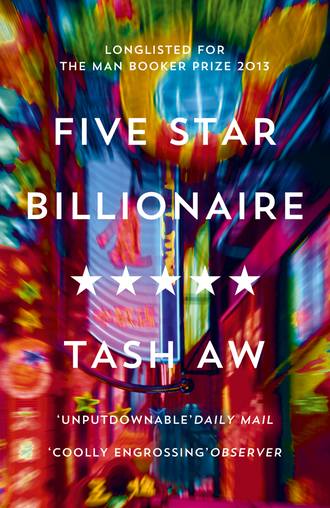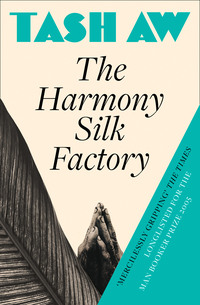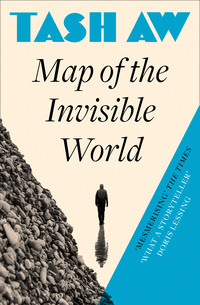
Полная версия
Five Star Billionaire
She went back to her lodgings. The door wouldn’t lock, so she slept with her handbag tucked into her belly, curved into a tight C-shape.
Those first few months in Shenzhen passed very quickly. During this time Phoebe did a number of jobs that she would rather not talk about right now. Maybe some day, but not now.
You can only rely on yourself. There are no true friends in this world. If you place your trust in others you will open yourself to danger and hurtfulness.
She got a job at a place called Guangdong Bigfaith Quality Garment Company, a factory that made fashion clothes for Western brands – not the expensive labels that Phoebe had heard of but lesser ones that sold shiny, colourful clothes, though the other girls told her that these were trendy shops even though they were low-cost. Apparently in the West even rich people buy cheap clothes. Personally Phoebe did not want any of the skirts or jackets or blouses that were made at the factory; they looked unclassy even to her. Her job was to match up the orders to the delivery notes and make sure that everything tallied. It was not a difficult job, but still she cried every night. The hours were long and at night she had to endure being in a dorm with the other girls, so many other girls. She hated seeing their underwear strung up on washing lines in every room, even in the corridors, drying in the damp air. Everywhere you went in the dormitory block all you saw was lines of damp underwear, and the whole place smelled of detergent and sweat. All day and night there was arguing and crying. She hated this, especially the night-time sobbing. It was as if everyone thought that when it was dark no one could hear them cry. She had to get away from them, she was not like them. But for now she had no choice.
The other hard thing to deal with was the jealousy, the things that were said about her. (How did she get such a good job straight away? Why was she in admin and not on the production line when she had only just joined the company? I hear she hasn’t even been out for long.) Well, Phoebe wanted to explain, first of all it was because she could speak English and Cantonese, the language of all the rich factory-owners down here in the south. And, quite simply, it was because she was better than the rest of them. But she knew to keep silent. She was afraid of the large groups of girls who came from the big provinces, especially the Hunanese girls who smuggled things out of the factory to sell outside and threatened to kill anyone who reported them. They liked to fight. Everyone had their own clan for protection: the Sichuan girls looked after each other, even the Anhui girls were numerous enough to have support. Only Phoebe was alone, but she would rise above them all because she was smarter. A line stuck in her head, advice given to her by the self-made millionaire. Hide your brightness, remain in the shadows. So she had to endure the jealousy and the detergent and the sweat and the crying. But for how long?
Do not let lesser people drag you down. You are a star that shines brightly.
She had a picture of a Taiwanese pop star by her bed. It was just a page torn from a magazine, an advertisement for cows’ milk, but it was a nicer decoration than the strung-up panties that the other girls had. It was a struggle to keep the Sellotape attached to the glossy painted wall because of the humidity, and the top corner kept falling away. But she persisted in sticking the picture up so she could look at him and dream about a world where there was no sobbing. If she turned her body at an angle there was only him and her in the world. She liked his delicate smile and watery eyes, and found even the silly white milk-moustache on his lip endearing. When she looked at his face she felt hope swell in her chest. His gentleness made her forget about the harshness of life and made her believe that she could work hard and show the world her true inner beauty. Maybe she could even be his girlfriend one day. Oh, she knew that it was just a fantasy, but he was so dreamy, and reminded her of the boys she had grown up with, whom she would remember forever as teenagers, even though they had now all moved to the cities and were selling fake leather wallets and probably amphetamines on the side. They had been so happy before, and now they were all growing old so quickly, including Phoebe.
But you are so young, little sister. That was what the new manager of her division began saying to her one day. He was a man from Hong Kong, not fat not thin, not ugly not handsome, just a man from Hong Kong. Once a month he would visit the factory and spend four or five days there. Every time he came he would call her into his office and show her the gifts he had brought for her – a bag of the juiciest tangerines, small sugary pineapples from Taiwan, strawberries, some foreign chocolate that tasted bitter and floury – delicacies that people bought when they could afford to travel. The hamper of fruit lay on his desk wrapped in stiff crinkly plastic that made a loud noise when she touched it. She did not know how she was going to carry it all the way back to her dorm, across the huge courtyard and the basketball courts, did not know where she would keep it or how she would explain it to the other girls. The jealousy against her had not really gone away; the tide had just subsided for the time being, but was waiting to well up like a tsunami at any moment. She knew that the gift was wrong, that she had not really done anything to deserve it, but as she looked at the shiny ripe persimmons, she felt special. Someone had noticed her, someone had thought of her enough to buy her nice things. It had been a long time since anyone had done that, so she accepted the gift.
As she carried the basket down the corridor to her dorm, she could feel the other girls’ hot stares burning her with their envy. She was sweating, and her heart was heavy with guilt, heavier than the basket she was carrying. But as she walked into the dorm she found herself talking freely, the words flowing easily from her mouth. Ei, everyone, look what I have! A cousin of mine in Hong Kong got married to a very rich man and they had their wedding. I couldn’t afford to go so they sent me some tokens of their big celebration. Come, come, let’s all share!
Hei, you did not tell us you are from Hong Kong.
Yes, Phoebe said. From just near the border, in the New Territories.
Oooh, the girls said as they reached for the fruit. So I guess it’s natural that you speak Cantonese! We thought you just learnt it to curry favour with the boss!
This is how things happen in China, Phoebe thought as she sat watching her new friends sharing the basket of fruit. Things change so fast. From then on all the girls knew who she was, and they were nice to her. They took her clothes and washed them for her when she was on a long shift, and some of them began to talk to her about their private lives – where they were from, their boyfriend problems, their ambitions. One day she was talking to a girl, just someone she shared meal breaks with in the canteen sometimes, not really a friend. The girl’s mobile phone rang, and she just looked at the screen without answering. Her face twisted into a pained expression and she handed the phone to Phoebe. It’s the boy I was telling you about, the one who bullies me. Phoebe took the phone and did not even say hello. This is your ex-girlfriend’s cousin, she said. This mobile phone belongs to me now. Your ex has a new boyfriend and he is rich and educated, not a stupid peasant like you, so just go away or else I will make trouble for you. I know who you are and which lousy place you work at.
Wah, you are amazing, Phoebe! Everyone was laughing and someone even reached out and put her arm around Phoebe’s shoulder.
On her first day off that month she went with some other girls to the cinema. They stopped at a fast-food place and had bubble milk tea before buying a box of octopus balls which they ate while strolling through the night market, linking elbows as if they were still in middle school. They turned their noses up at the cheap clothes, far cheaper than the ones they made in the factory, stall after stall of thin spangled nylon. The music on the speakers was loud, thumping in their ribcages and drowning out their heartbeats. It made them feel so alive. The smell of fried food and charcoal grills felt familiar to Phoebe – she did not feel so very far from home after all. They saw posters advertising the latest concert of the Taiwanese singer she liked, and the ticket prices did not look too expensive.
Hei, we should all save up some money and go! someone said. Phoebe, you love Gary, don’t you? Maybe we can share the cost of your ticket, because you are always cooking for us and sharing your food with us. I hear he’s going to sing some Cantonese songs too, since it’s here in Guangzhou, so you can teach us to sing along! She was happy that they offered, but she knew that these were empty promises and that no one would actually buy her a ticket.
She stopped to buy a shiny black top decorated with beads, but the other girls scolded her. Forty kuai! Too expensive. Aiya, new girls are always the same, always spending money on useless things instead of sending it home. Besides, you should be buying nicer clothes, something that suits your slim figure better, not some Old Mother style! But Phoebe bought it anyway, she didn’t care. It had pretty embroidery, a red rose adorned with silver beads that fanned out from each petal.
But as swiftly as the bright cool days of autumn give way to the damp chill of winter, life also changes. Phoebe knew this by now. Nothing ever stood still in China, nothing was permanent. A person who is loved cannot expect that love to remain for long. There is no reason for them to keep this love; they do not have a right to be loved.
She shared her third basket of fruit and other delicacies with her dorm friends. This time there were bags of dried scallops and a tin of abalone, which none of them had ever tasted before, and they gathered to cook a meal together. It was too luxurious for lowly people like them, one girl remarked – this meal was all thanks to Phoebe.
Really, said another girl, lifting her rice bowl to her mouth. Boss Lin says this kind of thing is not so special in Hong Kong, everyone eats it over there.
How would you know? When do you ever talk to Boss Lin?
Hm, it’s true. I rarely get a chance to speak to him. The only person he speaks to is Phoebe.
I wish he didn’t, Phoebe joked. He is so boring. Hai, it’s only because of my stupid job that I have to have contact with him.
It seems he takes a special interest in you. He even calls you into his private office.
Yes, but only to scold me for tasks I haven’t done! Come, eat some more!
The next month, Mr Lin summoned Phoebe to see him as soon as he arrived. He shut the door; the blinds were already down as usual. There was no fruit basket this time, only a small box. He opened it and held out a brand-new mobile phone, the type with no buttons on the screen, just a smooth glass surface. It was something a tycoon’s daughter would have, or a businesswoman. Phoebe didn’t even know how to turn it on.
But I already have a phone.
It’s OK, take it. Just tell your friends you won it in a competition.
She held it in her hands, turning it over and over again. She held it up to her face. It was like a mirror – she could see herself in it.
You like it? Mr Lin was standing next to her, though she had not heard him approach her. He put his hand on her buttock, the palm flat, burning through her jeans. Hours later, she would still feel the imprint of his hot hand on her, leaving its mark where it had stayed for less than half a minute, maybe not even that long.
In the dorm someone said, What’s happened to your cousin in Hong Kong? No food hamper this month? I think the cousin must have suddenly died and turned into a ghost!
Next day, two Shaanxi girls from the next block were taken away by the police. When Phoebe asked why, one of her dorm mates said it was because they didn’t have the right papers. They were illegal, and one of them was underage.
But I thought you said that kind of thing doesn’t really matter, that the employer doesn’t ask too many questions, where you’re from and all that, Phoebe said.
Sure, that’s right, her dorm mate replied, smiling. But rules are rules. You can dodge the regulations for so long, but if someone makes a formal report there’s nothing anyone can do. Half the girls here are lying about something, and most of the time it’s OK. Even if you don’t have a proper hukou or your papers are fake, who cares? Only when you step out of line do others make trouble for you. Those girls were unpopular, they were arrogant and made enemies. They thought they were better than everyone else, so what could they expect? It was just a matter of time.
One morning Phoebe came back after a night shift and saw that the poster by her bed had been defaced. The pop singer’s moon-bright complexion had been dotted with acne and now he wore round black glasses and there were thick cat whiskers sprouting from his cheeks.
Time was running out for Phoebe. From the first moment she set foot in China she had felt the days vanishing from her life, vanishing into failure. Like the clock she stared at every day at work, her life was counting down the minutes before she became a non-person whom no one would ever remember. As she sat during lunch break on the low brick wall next to the volleyball court, she knew that she had to act now or she would forever be stepped on everywhere she went. The grey concrete dormitory blocks rose up on all four sides of the yard and blocked out the light. There was Cantonese pop music playing from somewhere and through an open window she could see a TV playing reruns of the Olympics, Chinese athletes winning medals. She watched the high jump for a while. A lanky blonde girl failed twice, flopping down heavily on the bar. One more go and she was out. It didn’t really matter, since she wasn’t even going to win a medal. Then suddenly she did something that made Phoebe shiver with excitement. For her third and final jump she asked for the bar to be raised higher than anyone had jumped so far, higher than she had ever attained in her whole life. She had failed at lower heights but now she was gunning for something way beyond her capabilities. She was going to jump all the way to the stars, and even if she failed she could only come down as far as the lowly position she already occupied. She stood at the end of the runway flexing her fingers and shaking her wrists, and then she started running, in big bouncy strides. Phoebe got up and turned away. She didn’t want to see what happened, it was not important to her. The only thing that mattered was that the blonde girl had gambled.
She took her expensive new phone to a Sichuan girl who traded things in the dorm, and sold it for a nice sum of cash. She washed her hair and tied it neatly before going to Boss Lin’s office. She was wearing her tightest jeans that she usually reserved for her day off. They were so tight that she could not sit down comfortably without them cutting into the tops of her thighs.
Little Miss, it’s highly irregular for us to hand out salaries before payday, he said, but he was already looking for the number of the accounts department.
Come on, it’s almost the end of the month, only a week to go. Phoebe twirled her hair and inclined her head the way she noticed other girls doing when they talked to the handsome security guards. Anyway, she laughed, our relationship is a bit irregular, don’t you think?
Foshan, Songxia, Dongguan, Wenzhou – she was going to bypass them all. Her bar was going to be raised all the way to the sky. There was only one city she could go to now, the biggest and brightest of them all.

The girl at the next table was still reading her magazine, her boyfriend sending messages on his iPhone. Sometimes he would read out a message and laugh, but the girl would not respond, she just continued to flick through her magazine. He looked up at Phoebe, just for a split second, and at first she thought he was scowling in that familiar look-down-on-you expression. But then she realised that he was squinting because of the light. He hadn’t even noticed her.
The girl’s mobile phone rang and she began to rummage in her handbag for it, emptying out its contents on the table. There were so many shiny pretty things, lipstick cases, keyrings, and also a leather diary, a pen, stray receipts, and scrunched-up pieces of tissue paper. She answered the phone, and as she did so, stood up and gathered her things, hastily replacing them in her bag. Her boyfriend was trying to help her, but she was frowning with impatience. A 5-mao coin fell to the floor and rolled to Phoebe’s feet. She bent over and picked it up.
‘Don’t worry,’ the boy said over his shoulder as he followed his girlfriend out. ‘It’s only 5 mao.’
They had just left when Phoebe noticed something on the table. Half hidden under a paper napkin was the girl’s ID card. Phoebe looked up and saw that they were still on the pavement, waiting for a gap in the traffic to cross the road. She could have rushed out and called to them, done them a huge favour. But she waited, feeling her heart pound and the blood rush to her temples. She reached across and took the card. The photo was bland; you couldn’t make out the cheekbones that in real life were so sharp you could have cut your hand on them. In the photo the girl’s face was flat and pale. She could have been any other young woman in the café.
Outside, the boy was leading the girl by the hand as they crossed the road. She was still on the phone, her floppy bag trailing behind her like a small dog. The skies were clear that day, a touch of autumn coolness in the air.
With a paper napkin, Phoebe wiped the breadcrumbs off the card and tucked it safely into her purse.
2

Choose the Right Moment to Launch Yourself
Every building has its own sparkle, its own identity. At night, their electric personalities flicker into life and they cast off their perfunctory daytime selves, reaching out to each other to form a new world of ever-changing colour. It is tempting to see them as a single mass of light, a collection of illuminated billboards and fancy fluorescent strips that twinkle in the same way. But this is not true; they are not the same. Each one insists itself upon you in a different way, leaving its imprint on your imagination. Each message, if you care to listen, is different.
From his window he could see the Pudong skyline, the skyscrapers of Lujiazui ranged like razor-sharp Alpine peaks against the night sky. In the daytime even the most famous buildings seemed irrelevant, obscured by the perpetual haze of pollution; but at night, when the yellow-grey fog thinned, he would sit at his window watching them display boastfully, each one trying to outdo the next: taller, louder, brighter. A crystal outcrop suspended high in the sky, shrouded by mist on rainy days; a giant goldfish wriggling across the face of a building; interlocking geometric shapes shattering into a million fragments before regrouping. He knew every one by heart.
Buildings were in his DNA, he sometimes thought. They had given him everything he had ever owned – his houses, his cars, his friends – and even shaped the way he thought and felt; they had been in his life right from the beginning. The years were rushing past, whatever he had left of his youth surrendering to middle age, yet bricks and mortar – real estate – remained a constant presence. When he revisited his earliest memories, trying to summon scenes of family life – his mother’s protective embrace, perhaps, or praise from his father – the results were always blank. They were present in his memories, of course, his parents and grandmother, hovering spectrally. But, just like in real life, they were never animated. All he could see and smell was the buildings around them, the structures they inhabited: cold stone floors, mossy walls, flaking plaster, silence. It was a world from which there had been no escape. A path had been laid down for him, straight and unbending. He had long since given up hope of departing from this track, indeed could not even remember any other option – until he came to Shanghai.
The summer of ’08 had been notable for its stillness, the unyielding humidity that lay trapped between the avenues of concrete and glass. He had arrived in Shanghai expecting a temperate climate, but summer had stretched far into September and the pavements were sticky with heat, the roads becoming rivers of exhaust and steam. Even in his gated compound in Pudong, with its American-tropic-style lawns and palm-filled gardens, the air felt lifeless.
He had known little about Shanghai, and assumed that it would consist solely of shopping malls and plastic reproductions of its history, its traditional life preserved in aspic as it was in Singapore, where he went to school, or inherently Third World, like Malaysia, where he grew up. It might be like Hong Kong, where he had begun his career and established his reputation as an unspectacular but canny businessman who would hold the reins steady as head of the family’s property interests. Whatever the case, he had assumed he would find it familiar – he had spent his life in overcrowded, overbuilt Asian cities, and they were all the same to him: whenever he looked at a tower block he saw only a set of figures that represented income and expenditure. Ever since he was a teenager, his brain had been trained to work in this way, calculating numbers swiftly, threading together disparate considerations such as location, purpose and yield. Maybe there was, in spite of everything, a beauty in the incisiveness of his thinking back then.
But during those initial few weeks it was not easy for him to get any sense of Shanghai at all. His driver picked him up at his house and drove him to a series of meetings punctuated by business lunches, each day finishing with the soon familiar flourish of a banquet. He lived in a development called Lisson Valley, which was owned by his family. This, together with a more modest development in Hongqiao and a condominium block in Xintiandi, were all that they owned in the largest city in China, and they had decided that they needed to expand, which was why he had been sent here. They had spent a hundred years in Malaysia and Singapore, and now they needed to branch out in a serious way – like the great Jewish families of Europe in the nineteenth century, his father had explained, as if the decision needed to be justified. On the annual Forbes list of billionaires his family’s business was described as ‘Henry Lim and family – Diversified Holdings’ – it always made him wince, the term ‘diversified’: the lack of specificity carried with it an accusation, as if the source of the wealth they had amassed was uncertain and, most probably, unsavoury.
‘You’re too sensitive,’ his father had chided him when he was young. ‘You need to grow out of it and toughen up. What do you care what other people think?’
It was true: what other people thought was entirely irrelevant. The family insurance firm, established in Singapore since 1930, had not only survived but prospered during the war, and was one of the oldest continuous companies in South-East Asia. By any reckoning his family now counted as ‘old money’, one of those overseas Chinese families that had risen, in little over a century, from dockside coolies to established billionaires. Every generation built on the achievements of its predecessor, and now it was his turn: Justin CK Lim, eldest son of Henry Lim and heir to the proud, vibrant legacy of LKH Holdings, established by his grandfather.








